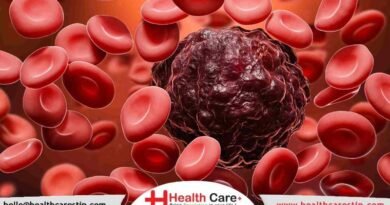Treating Breast Cancer
Treating Breast Cancer If you’ve been diagnosed with breast cancer, your cancer care team will discuss your treatment options with you. It’s important that you think carefully about each of your choices and weigh the benefits of each treatment option against the possible risks and side effects.
Local treatments
Some treatments, like surgery and radiation, are local, meaning they treat the tumor without affecting the rest of the body.
Most women with breast cancer will have some type of surgery to remove the tumor. Depending on the type of breast cancer and how advanced it is, you might need other types of treatment as well, either before or after surgery, or sometimes both.
Systemic treatments
Drugs used to treat breast cancer are considered systemic therapies because they can reach cancer cells almost anywhere in the body. Some can be given by mouth, injected into a muscle, or put directly into the bloodstream. Depending on the type of breast cancer, different types of drug treatment might be used, including:
Common treatment approaches
Typically, treatment is based on the type of breast cancer and its stage. Other factors, including your overall health, menopause status, and personal preferences are also taken into account.
Who treats breast cancer?
Based on your treatment options, you might have different types of doctors on your treatment team. These doctors could include:
- A breast surgeon or surgical oncologist: a doctor who uses surgery to treat breast cancer
- A radiation oncologist: a doctor who uses radiation to treat cancer
- A medical oncologist: a doctor who uses chemotherapy, hormone therapy, immunotherapy, and other medicines to treat cancer
- A plastic surgeon: a doctor who specializes in reconstructing or repairing parts of the body
You might have many other specialists on your treatment team as well, including physician assistants (PAs), nurse practitioners (NPs), nurses, psychologists, nutritionists, social workers, patient/nurse navigators, and other health professionals.
Making treatment decisions
It’s important to discuss all of your treatment options, including their goals and possible side effects, with your doctors to help make the decision that best fits your needs. It’s also very important to ask questions if there’s anything you’re not sure about.
If time permits, it is often a good idea to seek a second opinion. A second opinion can give you more information and help you feel more confident about the treatment plan you choose.
Connect with a breast cancer survivor
Thinking about taking part in a clinical trial
Clinical trials are carefully controlled research studies that are done to get a closer look at promising new treatments or procedures. Clinical trials are one way to get state-of-the art cancer treatment. In some cases they may be the only way to get access to newer treatments. They are also the best way for doctors to learn better methods to treat cancer. Still, they’re not right for everyone.
If you would like to learn more about clinical trials that might be right for you, start by asking your doctor if your clinic or hospital conducts clinical trials.
Considering complementary and alternative methods
You may hear about alternative or complementary methods that your doctor hasn’t mentioned to treat your cancer or relieve symptoms. These methods can include vitamins, herbs, and special diets, or other methods such as acupuncture or massage, to name a few.
Complementary methods refer to treatments that are used along with your regular medical care. Alternative treatments are used instead of a doctor’s medical treatment. Although some of these methods might be helpful in relieving symptoms or helping you feel better, many have not been proven to work. Some might even be harmful.
Be sure to talk to your cancer care team about any method you are thinking about using. They can help you learn what is known (or not known) about the method, which can help you make an informed decision.
SKIN | PAIN | DIABETES | CANCER | HEART ATTACK | NUTRITIONS | AVOID | HEALTHY FOOD





